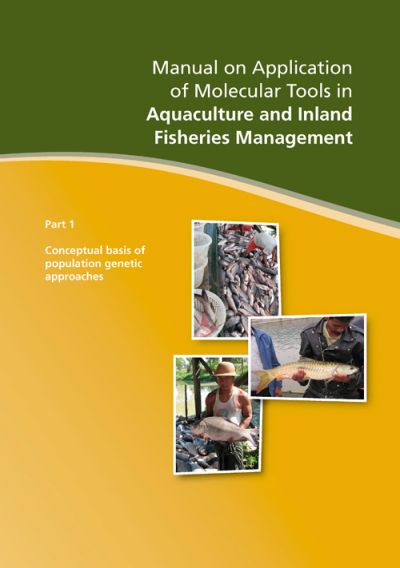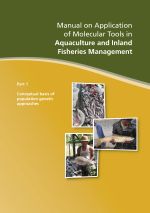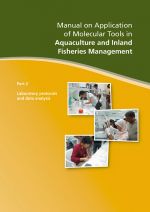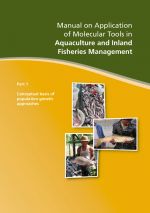Manual on Application of Molecular Tools in Aquaculture and Inland Fisheries Management
9 March 2007 | Thuy Nguyen, David Hurwood, Peter Mather, Uthairat Na-Nakorn, Wongpathom Kamonrat and Devin Bartley | 2917 views | .zip | 3.09 MB | Culture-based fisheries, Genetics and biodiversity, Hatchery and nursery, Inland aquaculture

The aim of this manual is to provide a comprehensive practical tool for the generation and analysis of genetic data for subsequent application in aquatic resources management in relation to genetic stock identification in inland fisheries and aquaculture.
The material only covers general background on genetics in relation to aquaculture and fisheries resource management, the techniques and relevant methods of data analysis that are commonly used to address questions relating to genetic resource characterisation and population genetic analyses. No attempt is made to include applications of genetic improvement techniques e.g. selective breeding or producing genetically modified organisms (GMOs). The manual includes two stand-alone parts:
Part 1: Conceptual basis of population genetic approaches: Provides a basic foundation on genetics in general, and concepts of population genetics. Issues on the choices of molecular markers and project design are also discussed.
Part 2: Laboratory protocols, data management and analysis: Provides step-by-step protocols of the most commonly used molecular genetic techniques utilised in population genetics and systematic studies. In addition, a brief discussion and explanation of how these data are managed and analysed is also included.
This manual is expected to enable NACA member country personnel to be trained to undertake molecular genetic studies in their own institutions, and as such is aimed at middle and higher level technical grades. The manual can also provide useful teaching material for specialised advanced level university courses in the region and postgraduate students. The manual has gone through two development/improvement stages. The initial material was tested at a regional workshop and at the second stage feedback from participants was used to improve the contents.
Creative Commons Attribution.


